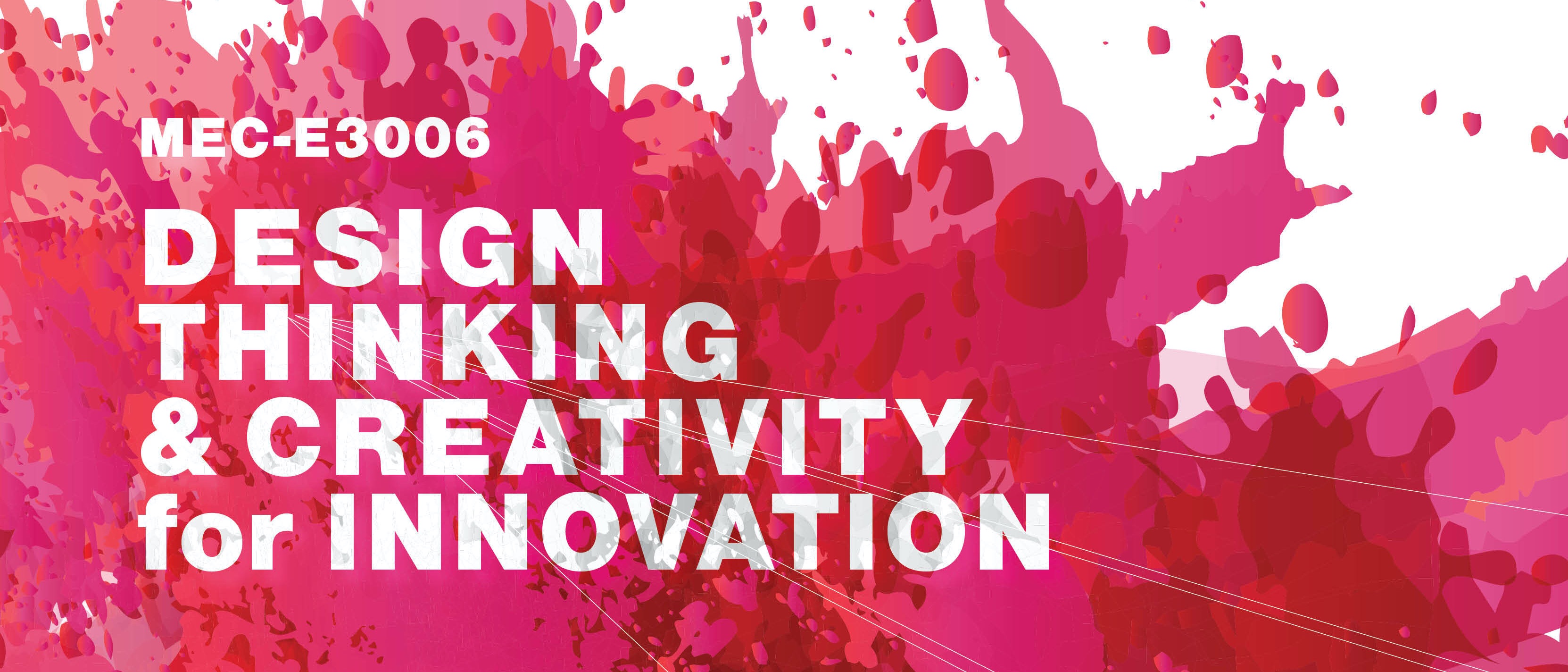MEC-E3006 - Design thinking and creativity for innovation, Lecture, 5.9.2022-31.7.2023
This course space end date is set to 31.07.2023 Search Courses: MEC-E3006
Topic outline
-
This course is a self-study course, where students can choose from the online self-study modules offered on the MyCourse pages of the course that cover a changing collection of contemporary topics relevant to product development, innovation management and creative efforts in organizations. The full content of these modules becomes visible in MyCourses as soon as you register to the course, and these can be completed by the student at any time during the year.
After the completion of the course, you
- are familiar with key practices in design thinking and/or creativity in organizations
- can describe key considerations for innovation and connect these to practical examples
- can identify appropriate conditions to utilize select design thinking and/or creativity methods in different types of innovation initiatives

From the beginning of the fall 2022, there will be three one-credit modules available for self-study, where you can pick 1-3 to complete to gain 1-3 study credits.
- The design thinking process - key practices in different phases of the process (NB! If you did MEC-E3999 before 2022, there will be partial overlap)
- Radical creativity: Making room for novelty and exploration - leadership, processes and key practices
- Organizing design-driven Innovation: Case ABB Marine & Ports Pilot Projects (NB! If you did MEC-E3999 before this academic year, there will be significant overlap here)
Responsible teachers: Tua Björklund (ENG) and Satu Rekonen (SCI)
